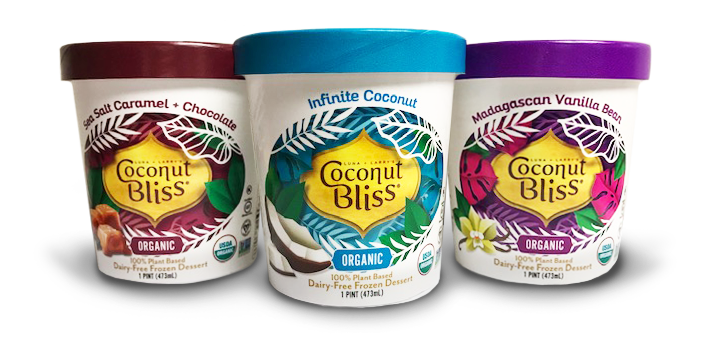What’s your packaging made of? What is polyethylene (PE) packaging? More times than not, it’s made of a heavily relied upon thermoplastic polymer known as Polyethylene, the most popular plastic in the entire world. Why is it the most popular, you ask? It’s extremely lightweight, long-lasting and doesn’t produce too much friction. Additionally, it’s flexible and resistant to some of the most harmful elements to plastic: the sun, electricity and corrosion. It’s used for such products as plastic grocery store bags, plastic bottles, cling wrap and shampoo bottles.
However, as you may already know, Polyethylene is not the best at being biodegradable. It’s responsible for many of the millions of tonnes of plastic in our world’s landfills, even though it’s fantastic for being recycled and melted down for reuse. That’s why the packaging world is setting its sights on Bio-Based Polyethylene packaging. Due to the need for eco-conscious packaging in the world and since many suppliers are switching to this substitute, here are 5 facts that you may not have known about this bio-based plastic.

1) It’s extremely eco-friendly
That’s right, bio-based polyethylene is perfect for those who are looking to reduce the number of carbon emissions they create in the world, lower their overall energy consumption and protect the environment. So many companies are now looking towards this fantastic plastic-alternative because it ends up being a win-win for both the consumer and for packaging companies.
Additionally, it’s crucial to understand that bio-based plastics like bio-based polyethylene contains renewable carbon elements. This is one of the main reasons so many manufacturers are making the switch to bio-based and not fossil-fuel based plastics. At the end of a bio-based plastic’s life cycle, it will return to the atmosphere, but will not add any elements of new carbon to the environment.

2) It’s recyclable
Yes! This bio-based plastic can be recycled, and in today’s climate, that’s a major selling point. Having the ability to seamlessly integrate into already well-established recycling streams of major cities like Toronto, New York and Chicago is a sought after trait in the packaging world.
Bio-based polyethylene offers the advantages of being one hundred percent recyclable and carbon positive, a benefit that North American businesses can use in their marketing for new packaging as well as to boost their corporate social responsibility. Prior to having this substitute, most bio-based products were thrown into the garbage which was then incinerated at waste plants, contributing heavily to global warming. By switching to this recyclable material and packaging, businesses can help reduce greenhouse gasses by up to 35%.

3) It’s made from plant-based materials
What allows it to be called bio-based polyethylene? It’s made from 100% renewable resources such as sugar cane, corn, rice, potatoes, wheat and vegetable oil.
These resources, especially sugar cane, have been proved to be the most environmentally friendly materials and the best method of recreating the polymers that regular polythene products have. As more and more companies switch to using plant-based products, only a plant’s ability to use photosynthesis is relied upon versus extracting fossil fuels. Gone are the days of using harsh chemicals and materials.

4) It’s a safe and effective alternative to traditional PE packaging
Traditionally, these bio-based products have been used for single-use products, but as the demand for this type of product has increased, so has the technology behind it. The durability now rivals that of its non-bio-based cousin. You can now find bio-based polyethylene being used on products such as cars and trucks to construction equipment and children’s toys!
In addition to using bio-based PE on industrial and everyday use items, it’s also a fantastic alternative used in food packaging. Not only is the bio-based polyethylene that is used in packaging food grade and non-toxic, it also has all the characteristics of the PE we all know and use daily. The main difference? It doesn’t harbour the same amount of negative environmental effects.

5) It’s expected to grow in popularity
As the world looks towards the future of packaging, bio-based plastics and materials are becoming more and more necessary. The need for packaging is growing steadily thanks to factors like growing urban centres and rising standards of living. This development sets high demands on how we package our goods like take-out, fresh fruit and meals. As mentioned before, sustainability is one of today’s key trends and requirements for our future. Recyclability and the use of recycled or bio-based materials are the features now sought after in sustainable, flexible packaging solutions.
For example, Ice cream companies large and small are ever-increasingly asking for environmental options. Stanpac has recently introduced ice cream packaging where the paperboard is coated with a resin derived from Sugar Cane, replacing traditional petroleum-based resin with bio-resin. Stanpac chose Sentinel™, a fully renewable ice cream board supplied by Evergreen Packaging®.
Coconut Bliss, a family-owned, award-winning, dairy-free ice cream producer recently announced a momentous company-wide rebrand. In conjunction with the rebrand, the company is proud to introduce eco-friendly pint packaging. It’s the first-of-its-kind and was developed as part of its commitment to sustainability. Coconut Bliss is the first to use plant-based bio-resin polyethylene pint cup packaging made from the husks of sugar cane.

How do I make the switch to Bio-Based Polyethylene packaging?
At Stanpac, we offer bio-based products that are sourced ethically and sustainably. Make the transition for all of your bio-based product needs today!
Feel free to call us at 905.957.3326 to discuss how we can help you make a more sustainable and environmentally-friendly packaging change. We look forward to hearing from you!
